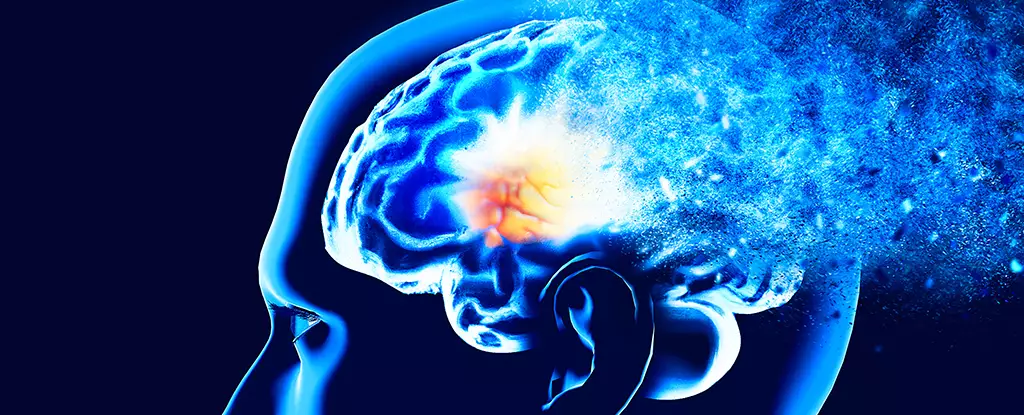Young-onset dementia (YOD) is an issue shrouded in misunderstanding and stigma. Unlike Alzheimer’s disease, which predominantly expresses itself in the elderly, YOD presents a grim reality for a younger population—those under the age of 65. Each year, hundreds of thousands suffer from this debilitating condition, curtailing not just their cognitive faculties but also their personal and professional aspirations. Until recently, the predominant narrative surrounding dementia has largely focused on genetic predispositions, but the 2023 study spearheaded by a team of epidemiologists has boldly shifted the lens towards modifiable lifestyle factors.
A Groundbreaking Study Unfolds
As cited by David Llewellyn from the University of Exeter, this monumental study involving more than 356,000 individuals unveils a diverse range of factors influencing YOD risk. Readers often overlook the nuances embedded within these results. The study brilliantly illustrates that low socioeconomic status, social isolation, and chronic health conditions—such as diabetes and depression—are not merely side notes but rather significant contributors to the onset of dementia. These findings bring light to a harsh truth: our health is often determined by our environment and life choices, not just our genes.
It is indeed exhilarating for many advocates for change to see such a broad exploration of modifiable factors, including vitamin D deficiency and even lifestyle choices concerning alcohol consumption. However, the portrayal of alcohol’s complex relationship with YOD invites cautious interpretation. On one hand, alcohol abuse can indeed accelerate the risk of developing dementia, yet moderate drinking appears paradoxically to offer some protective benefits. One wonders if this “healthier” group is simply reflecting the more privileged lifestyle choices made by those who consume alcohol responsibly, highlighting the need for a broader assessment beyond mere statistics.
Education and Physical Health: The Non-Negotiables
The insights regarding education levels and physical health really resonate within public health discussions. The study stresses how higher levels of formal education and even basic measures of physical strength, like hand-grip tests, correlate with significantly lower risks of YOD. This underscores an important observation: investing in education and promoting healthy lifestyles from an early age could be pivotal in fighting dementia.
It poses a rhetorical question—what does our educational system value? If we can support mental acuity in early years through enhanced educational resources, can we eventually change the dementia narrative for the younger population? We live in unsettling times where economic disparities dictate health outcomes, and unless we confront the societal structures enabling such inequities, the relentless rise of YOD will only continue.
A Call to Action for Societal Change
Moreover, the relationship between mental health and YOD cannot be overstressed. Chronic stress, loneliness, and depression—a trifecta of emotional burden—plausibly emerge as significant risk factors. What does society do to address mental health vulnerabilities? It is apparent that we are far from the mark in providing sufficient support mechanisms for those at risk, particularly for young adults.
The stereotype that dementia is solely an elderly issue perpetuates a dangerous ignorance that keeps younger victims from seeking help or even acknowledgment of their condition. It’s time to challenge these preconceived notions and make mental health care as paramount as physical healthcare.
On a broader scale, one cannot help but feel hopeful yet frustrated. While unveiling modifiable risks opens doors, tackling the entrenched systemic issues that bind socioeconomic status and mental health is a Herculean task. The findings foster optimism that perhaps we can collectively forge a lifestyle that reduces the risk of such a debilitating condition—if only we can navigate through the complexities of societal change.
In the end, confronting YOD requires a multidimensional approach that melds lifestyle adjustments, educational initiatives, and emotional support systems. It is not merely an issue of medical interest; it is a call to societal arms—a plea for compassion, understanding, and action. As such, we must persist in rooting for inclusive communities that prioritize health over ignorance, understanding over stigmatization, and ultimately, a brighter future for generations to come.


Leave a Reply